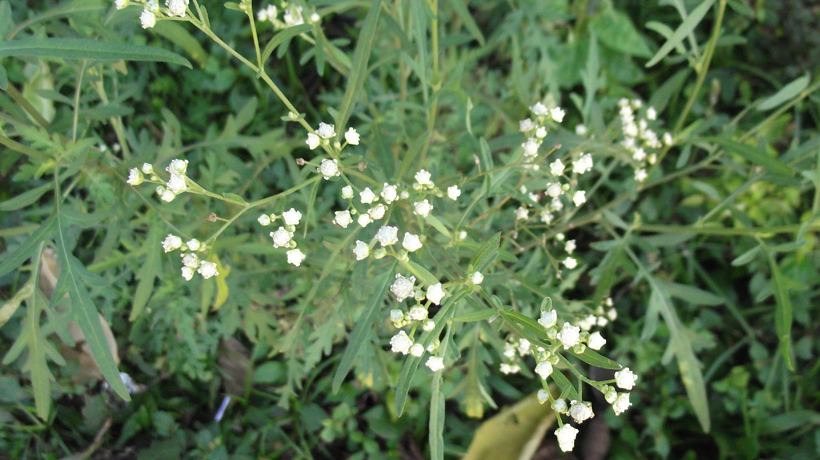Trending Now
- “If Edappadi Palaniswami permits, a thousand young members from the Virudhunagar district AIADMK are prepared to take up arms and engage in battle under my command.” – Former AIADMK Minister Rajendra Balaji
- “India is ready to deal with any counter-attack by Pakistan” – Wing Commander Vyomika Singh
- Central govt orders extension of CBI Director Praveen Sood’s tenure for another year
Coimbatore
De-weed parthenium, detox lands
![]() September 6, 2019
September 6, 2019
A Parthenium Awareness Week was held in Coimbatore recently to spread information about the harmful effects of the toxic weed and methods available to tackle it.
The Tamil Nadu Agricultural University (TNAU) Coimbatore recently conducted an awareness week on parthenium and the harmful effects of the weed. The aim of the workshop held from August 16 – 22, was to create awareness about parthenium and methods available to eradicate it completely from Indian soil.
Professor Dr. P Murali of TNAU told The Covai Post, “In 1955, the Government imported tons of wheat germ from US markets to reduce famine in our country. We believe that parthenium weeds came with that wheat. Within three decades, the weeds spread from Kashmir to Kanyakumari and currently nearly 35 million hectares are ridden with it.”
He said the weed has many harmful effects for humans as well as animals. Mere inhalation of the weed’s lightweight spores can cause asthma, fever and skin rashes. Some people may even suffer more serious health conditions if they touch this weed with bare hands.
Parthenium affects soil fertility too because each plant can produce upto 30,000 seeds per annum! “So a single plant, if not uprooted and destroyed, can generate a minimum of 10,000 more within one year. The Government of India has addressed this issue with the Indian Council of Agricultural Research’s (ICAR) multiple schemes throughout India. As part of this, parthenium awareness weeks are held regularly in schools, colleges, government offices and for sanitary workers and farmers,” said Dr Murali.
Methods to eradicate
Eradicating the weeds is not an easy task. However, there are three ways to destroy the weeds. First is to uproot the weeds and bury the plants in a deep pit usually on unused or arid land and cover it with sand. It will decay within 30-40 days. The second one is to spray it with a herbicide called Glycoside that can kill these weeds instantly. A third method is to release the Mexican beetle (Zycogramma bicolarata) among the vegetation because parthenium is its chief food.
“We also advise farmers to continuously de-weed their lands during fallow periods. Hopefully with constant monitoring, eradication is not impossible,” he concluded.























